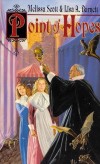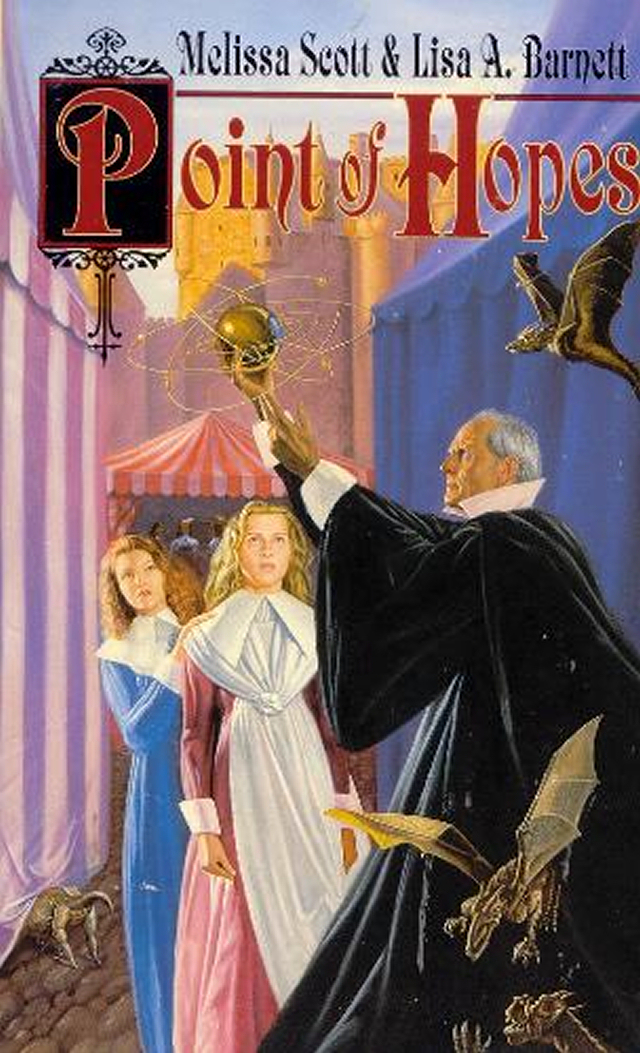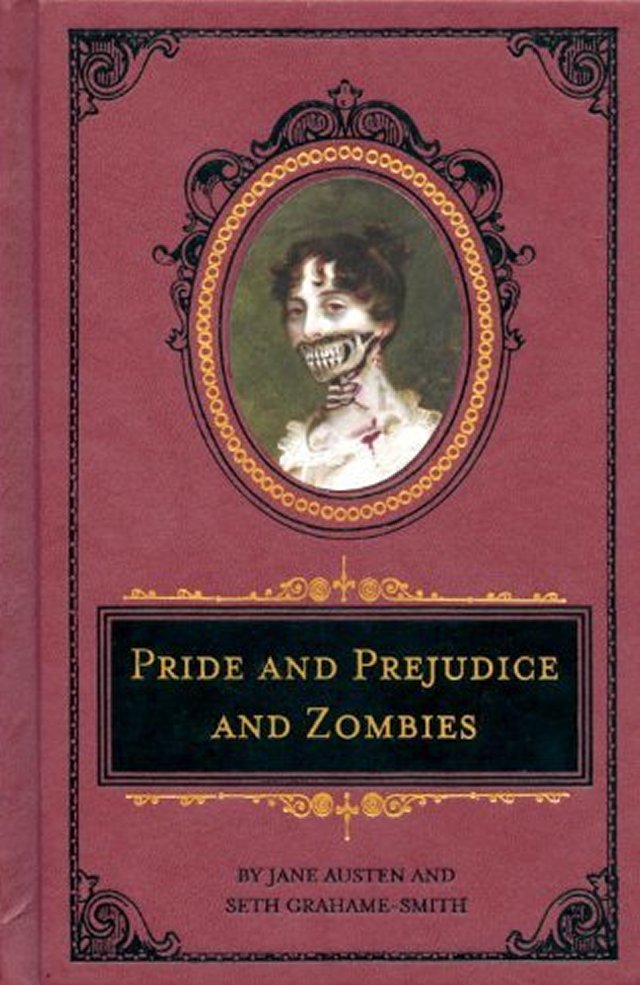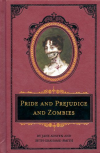 Point of Hopes is one of those titles that you can never quite remember. This is a book, really two books (the other being Point of Dreams to add to the confusion), that I’ve seen in various locations and lists. With the impetus of Triple Take, I’ve now read this one. If I can manage to remember the title of it.
Point of Hopes is one of those titles that you can never quite remember. This is a book, really two books (the other being Point of Dreams to add to the confusion), that I’ve seen in various locations and lists. With the impetus of Triple Take, I’ve now read this one. If I can manage to remember the title of it.
The cover intrigued me. It looked rather Puritan, but it also looked academic, and there were girls, or at least young women. But while I can now say the cover accurately represents an important scene in the book.. none of those first impressions were correct. No, those girls and even that guy in the robe.. none of them are main characters.
We start with an unpromising prologue. I had trouble following whose point of view it was, or in being very interested in it. Fortunately, I know that most prologues have little to do with the style and tone of the rest of the book. Unfortunately, that means you have to sit through them and get to the real first chapter before you can tell whether to give up on the book or not. Extra wasted time and effort.
This book does get better after the prologue. The point of view problems settle down… mostly. As we alternate sections and/or chapters with first one character, Rathe, a pointsman (this world’s version of a police detective), and a second, Eslingen, a militaryman between jobs acting as a hired guard. But I do say mostly, because there’s one section in particular where they’re in the same scene and the point of view gets all jumbled up again. It’s at this point that I wondered if the two authors were collaborating by each taking one character. And that they then had trouble reconciling it when the two had scenes together.
As for the plot, it’s mostly a mystery plot. Children are disappearing from the city and Rathe sees it as his job and calling and obligation to various people and whatnot to try to find out what’s going on. So a lot of the book is him running here, and running there, and talking to people, and collecting clues. And really, do people like reading mysteries and watching all this running around and talking to people? Because I don’t get a whole lot of pleasure out of it.
Things got hopeful when Rathe first lays eyes on Eslingen. He makes a point of noting he’s handsome and what he’s wearing. Which isn’t unusual, in itself, but my ears and eyes were perked for a budding romance. A love story? A romantic subplot at the very least? A friendship that slowly evolves into something more? Well, perhaps it’s a spoiler to say so, but I was denied, dear reader. DENIED!
And not in the usual way.. where all the slash is subtext that I’m probably reading into a normal manly friendship. No. Because the authors make a point of Rathe being surprised Eslingen was interested in women. And you just know, you just know, that Rathe is interested and that Eslingen probably wouldn’t be too against it either. Because there are hints throughout that this is a very bisexual sort of society. Not that everyone is, but that the society as a whole is. So that maybe, maybe, if the story of these two continues in the next book, Point of Dreams, they might move further along in this relationship. But by the end of this book, it’s not much of a relationship. It’s barely even a friendship.
GRR!
One cute thing about this world is there are gargoyles. And they’re basically like rats. They hang around the garbage and are a nuisance, but a somewhat cute sort of nuisance. Maybe more like wild cats combined with pigeons? Anyway, that’s a cool little addition. And you can see them on the cover of the book. Even if you first take them for firelizards.
The end of the book seems rushed. I even started noticing more and more typos. And then the big bad bad guy is defeated waaaaay too easily. And quickly. Perhaps, in that way, it was again more like a mystery than a typical fantasy. In a mystery, it doesn’t matter if you shoot the guy at the end, as long as you’ve proved it’s him and done all your revelations. (Not that he gets shot. That’s just an analogy.)
One other thing I should definitely say is that this book read like a very long slog. Perhaps not a particularly hard slog, but a slog. It took a lot longer to read than it looked like from the size of the book. There were a lot of words crammed onto an individual page and the chapters were incredibly long. I think there were only about 9 or 10 chapters in the whole book. I read it diligently and plowed ahead with it, but it still took me over a week to finish it.
I’m mostly left feeling that I like this world. Women are more or less equal. The gargoyles are a bit of fun. They don’t mind a bit of same-sex fooling around — prevents the apprentices and journeymen from getting pregnant. There’s an interesting political setup with the way the local police are new and still feeling out their role.. which isn’t quite the same as we know police.
But while I do like the world, and the characters aren’t bad, I just can’t like the story. It wasn’t the story I wanted, I guess.
So I’m torn. Do I revisit the world because it’s cool and I want to learn more about it? Because the authors might explore things I was more interested in? Because the main characters might finally hook up? Or do I not subject myself to another long slog for a similar plot and unfulfilled expectations?
I’m going to have to give this one a 3.



 The Plot
The Plot